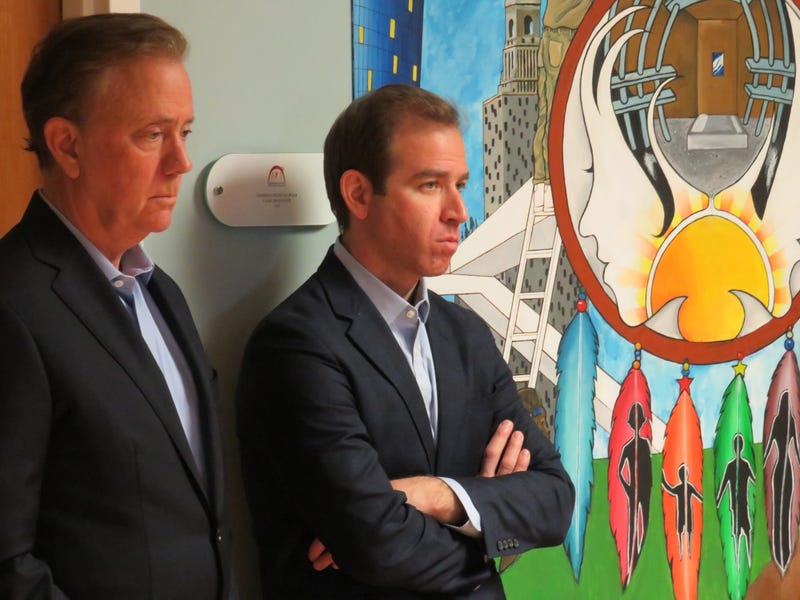
The impact of Connecticut's historic cannabis law kicks in further Tuesday, with the start of legal sales for recreational use. At the same point, state officials say more residents are out from under the state's now-defunct ban: almost 44,000 residents are now free of pot convictions handed down years before possession of small amounts became legal. They were erased, effective Jan. 1.
"That 'war on drugs' destroyed a lot of lives," according to Gov. Ned Lamont (D), who says those convictions cost otherwise innocent people jobs and housing opportunities. He appeared at the Reentry Welcome Center in Hartford, where those returning from incarceration find help accessing fundamental services.
Hartford Mayor Luke Bronin cites the impact of such convictions on cities like his, saying, "We are all better off when people have the ability to get a second chance."
The Lamont Administration says the enforcement of prior marijuana possession laws disproportionately impacted minorities. Mark Pelka, Undersecretary of Criminal Justice Policy and Planning at the Office of Policy and Management reports that while African-Americans make up about 10 percent of the Connecticut population, they represent about 35 percent of those who are having their minor possession records wiped out.
Officials at the Reentry Welcome Center say many of their clients are homeless, with their housing opportunities constricted by prior cannabis convictions.
"The ability to be able to say that you no longer have a criminal record is going to help their ability to secure housing," says Executive Director Beth Hines of Community Partners in Action, which administers the Reentry Welcome Center, "because we know that landlords are going to look back on criminal histories."
The 44,000 convictions tossed just scratch the surface of eligible cases. Tens of thousands of other records for pot possession and other relatively minor violations were set to be erased Jan. 1, but state officials reported late last year that they could not follow through for procedural reasons.
Sen. Gary Winfield (D-New Haven) says those cases-- and more-- should be reviewed for erasure:
"If you've been out of prison for 10, 15, 20 years, and you've not done anything wrong, I'm not sure what we're doing by keeping a record over your head."
The expunged convictions cover cases from before 2000 and after late 2015. More information for those with eligible convictions that have not been erased can be found at portal.ct.gov/cleanslate.

